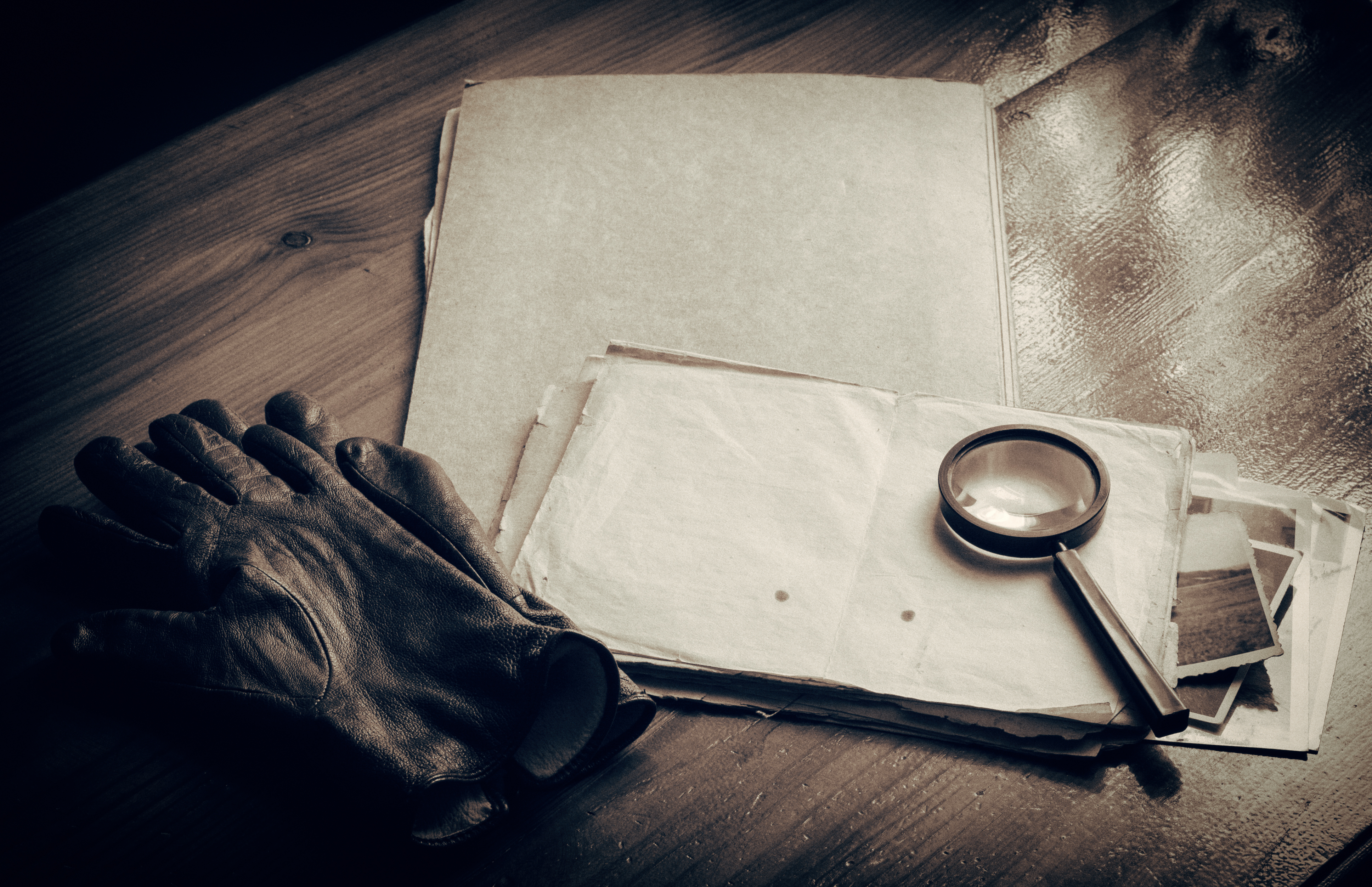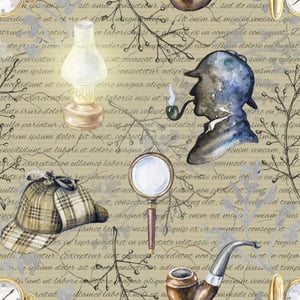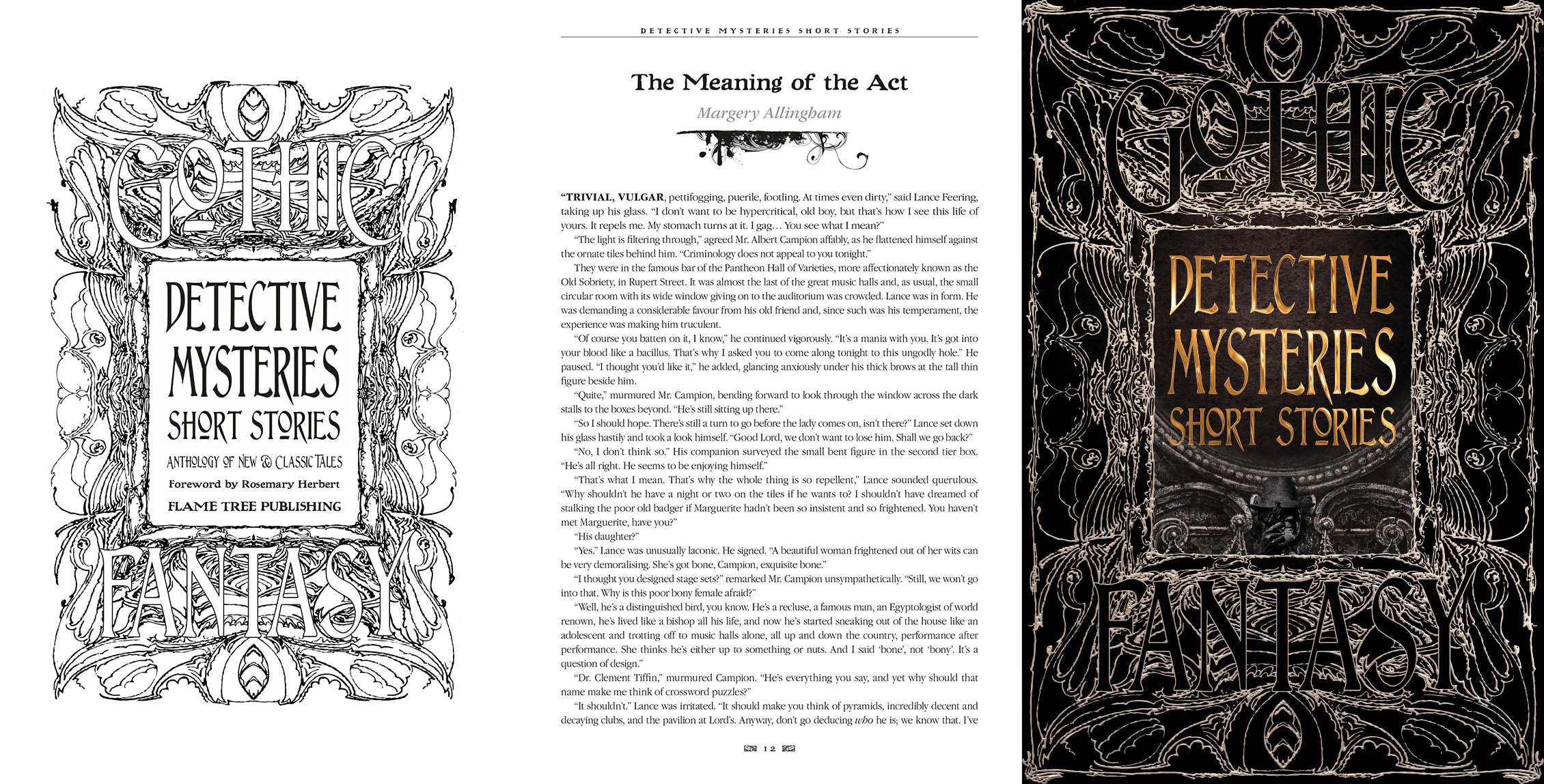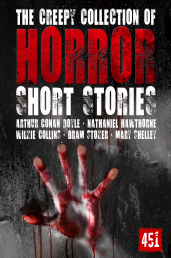Featuring new authors alongside classic works by Margery Allingham, Arthur Conan Doyle, Carroll John Daly, Anthony Berkeley and more, our recently released collection Detective Mysteries is a treat for crime fiction lovers. Last week, the modern authors from the book introduced their stories by discussing the inspiration behind their tale. Now, they recommend stories and authors whose influence they’ve felt in their own work, and cast light on how they approach the task of writing:

What are your favourite stories from this genre?
For recommended noir, everyone knows to check out Chandler, Hammett, and Butcher's Dresden Files. But Jody Lynn Nye writes the best cat mysteries, whether it's cats in space or cats at the cop shop. For noir SF/F, I recommend Glen Cook's Garrett, P.I. series. For more-contemporary feminist takes that still have their roots in noir, check out AJ Aalto's Marnie Baranuik Files, Kim Harrison's The Hollows series, and Laura Anne Gilman's Cosa Nostradamus novels and short stories.
Wells and Verne, who mixed the futuristic with what was, for them, the contemporary. Some of their visions came to pass and some did not, or have not as yet. When a modern writer chooses a nineteenth century setting for science fiction, however, he has also to watch out for accidental anachronisms. It’s a challenge I enjoy.
Michele Bazan Reed
For private detectives, my favourite has to be Agatha Christie’s Hercule Poirot. I enjoy the stories, novels, television shows and films! For police detectives, I love Louise Penny’s Chief Inspector Armand Gamache, Andre Camilleri’s Inspector Salvo Montalbano, Donna Leon’s Commissario Guido Brunetti, and Maureen Jenning’s Detective William Murdoch.
I've read hundreds if not thousands of detective and crime stories, from Sherlock Whatshisname on, but my favourite all-time police procedural is Akira Kurosawa's 1963 movie High and Low.
If we look at this tale as being of the ‘limited number of suspects trapped in an isolated setting’ school, I'd have to go with Shutter Island (the film, yes, I need to read the book!), Identity, and so many of Agatha Christie's novels, but let's say ‘And Then There Were None’. I must say I really love this kind of story, not only because it allows the writer to have fun with setting and mood, but also because it provides an easy excuse as to why the police weren't called in immediately and because the restricted cast of characters and limited opportunities gives the reader a real chance to focus on the mystery and maybe even solve it before the detective.
The Dresden Files is my favorite urban fantasy series, and Althea Stagg’s adventures draw strongly from the genre’s tradition of paranormal mysteries. I also owe a good deal of inspiration to Neil Gaiman’s American Gods for his depiction of demigods caught up in the schemes of their parents’ divine politicking.
Tom Mead
I love mysteries tinged with magic and the inexplicable. That’s why John Dickson Carr is a hero of mine – he is the acknowledged master of the locked-room mystery. He also excelled at short stories, including ‘The Wrong Problem’, ‘Blind Man’s Hood’ and ‘The House in Goblin Wood’. A few other works which stick in my mind are ‘Death and the Compass’ by Jorge Luis Borges, ‘The X Street Murders’ by Joseph Commings and ‘The Case of the Horizontal Trajectory’ by Josef Škvorecký.
Can you tell us a little about your writing process?
Pat Morris
I have a journalism background and am used to knowing the whole story before I write it, and concentrating intensely for spurts to meet tight deadlines. So this is a big change for me. Without a deadline I’m easily distracted. So my dear friend, the playwright Lynda Crawford, and I have a virtual writing date every day – her in New York and me in Florida. We get in at least an hour most days, and it helps me build up momentum.
Trixie Nisbet
I can’t write anything until I know the ending of a story. So, I have to go through the agony of mulling things over until eventually a whole plot appears. Only then can I think of how to tell the story and the characters I would need to bring it to life. I then write it in longhand with much crossing out, arrows to move sections around and notes to myself if I can’t immediately think of the right words. Then I type it, improving as I go. Then comes the editing pen, adding, changing and removing, until finally I’m happy with the result.

I don’t have a set rule for my process. Sometimes I outline, sometimes I don’t. Sometimes I know the end, most of the time I don’t. I usually go through a lot of drafts with many small changes versus a few huge revisions in less drafts. But I always give myself a goal for a writing session, usually a word count or number of pages to revise. And I try not to rush myself when I’m getting a concept together. I have to let the idea ‘simmer’ for a few months (or even years) before it’s ready to be written. You never know what experiences will change your story, and it’s best to be open to anything.
I have a full-time job, so I try to write every day at lunchtime, and after work. I have to do it every day Monday-Friday to make progress. Weekends are reserved for writing emergencies. I do think writing every day enhances your writing muscles. I also try to read some fiction every day.
I have no particular schedule. I grab time whenever I can. My favourite writing spot is the recliner in my bedroom surrounded by books and scribbled notes. Otherwise, I have a cat trying to sit on my lap which is not conducive to writing! I tend to write a few pages and then edit. Put that on a loop, and that’s how a story comes to be for me.

Detective Mysteries is now available to buy through our website here!
Links
- Did you miss Part 1 of the Q&A with these authors? Catch up with it here.
- See the full list of authors included in Detective Mysteries here.
- Browse the full collection of anthologies here.
Images courtesy Shutterstock.com




